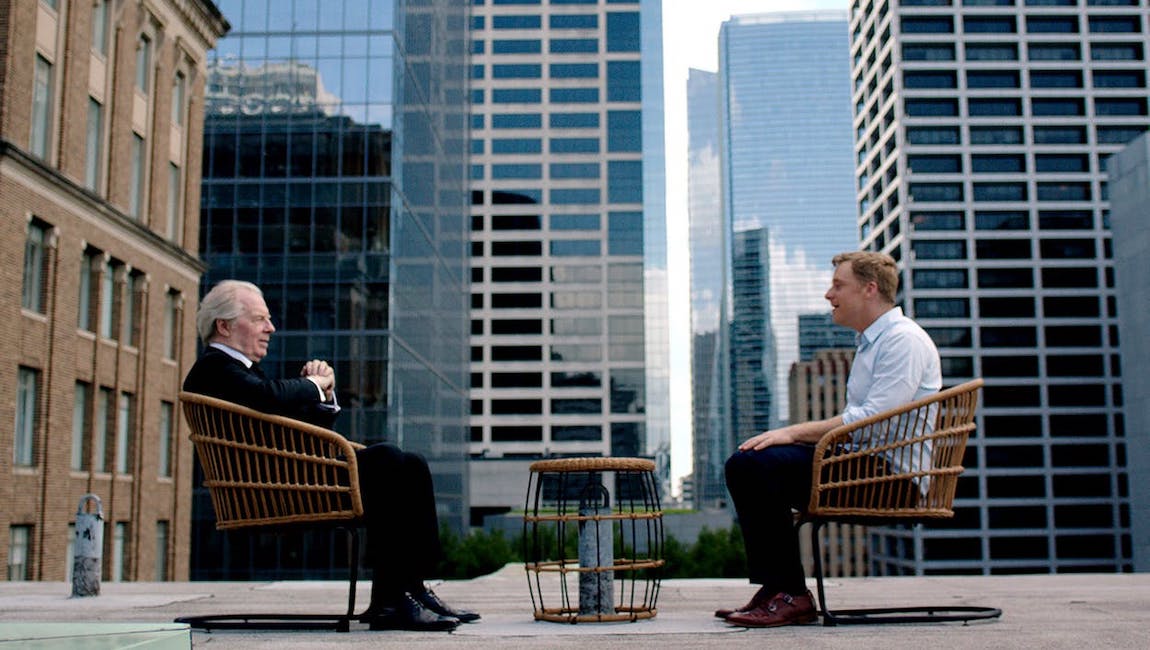The degree to which actors can elevate unexceptional material by their mere presence is difficult to gauge. After all, plenty of indifferently conceived star vehicles are duds. Viggo Mortensen’s second film as a director, The Dead Don’t Hurt is that rare example where a lead performance, here by top-billed Vicky Krieps, transforms the work and lends it a complexion it otherwise wouldn’t have had or which might not have been present on the page. She brings to this Western a particular femininity, a softness, that is singular to her and her style of performance, and the film is much richer for it.
In some ways, The Dead Don’t Hurt is a very straightforward story — of a beautiful love affair sabotaged by bad actors (not of the thespian variety). Mortensen is aware of the text’s conventionality and scrambles its timeline to generate interest, to mostly successful effect. The film thus begins with two scenes that take place near the end of the tale. The first concerns the last moments of our protagonist, Vivienne Le Coudy (Krieps), who dies in the arms of her partner, Holger Olsen (Mortensen). The second is a bloody shootout in the nearby town where spoiled rich kid Weston Jeffries (Solly McLeod) shoots dead several civilians in a murderous rampage, and then escapes. The connection between these two events is not clear.
We then move both backward and forward in time. The scenes that continue the storyline consist of a sham jury trial put together by the corrupt town mayor, Rudolph Schiller (Danny Huston), and Weston’s wealthy father, Alfred Jeffries (Garret Dillahunt), to investigate the civilian deaths. An innocent mute man is wrongfully convicted and hanged for murder to cover up for Weston. At the same time, Holger, heartbroken by Vivienne’s death, embarks on a journey away from the town to deal with his grief — taking along their four-year-old son.
But it’s the scenes set prior that form the meat of the film, and these sections chart the life story of Vivienne. We see the first encounter between her and Holger, their mutual attraction, and the gradual blossoming of their romance; even meet-cutes and light romantic sequences can be rendered compelling by great performances, and Kriepes and Mortensen deliver, crafting a believable love story despite the limited screen space. Somewhat uncommon in the Western, they are also evenly matched, with both characters proving to be fiercely independent outsiders in the American West — she’s French Canadian and he’s Danish — and their story slowly, movingly builds to the pair of climatic scenes that open the film.
Despite this familiar setup, Mortensen’s chronological structuring pays off as it bakes a natural tension and suspense into the film. But the director goes a step further still, adding a third axis of storytelling wherein Vivienne’s childhood with her French Canadian parents is recounted, along with the dreams and desires that shaped her as a little girl. There’s lovely Joan of Arc symbolism in these French-dialogue sections, and they help Krieps’ Vivienne to bloom into a fully formed, three-dimensional character. And in a welcome surprise, we eventually find that not all the various strands introduced by Mortensen intersect or interact, which lends the film a certain naturalistic, or at the very least, an appealingly loose feel. The Dead Don’t Hurt moves at its own pace, unfurling primarily to chart the life of a woman rather than to stage gratuitous gun battles or only develop her via her relationship to a man. But when the denouement does indeed arrive at a gun battle — an inviolable trope of the Western — it’s subverted by Mortensen in interesting ways, again aiding his film from sliding into mere cliché.
If there’s a weakness to the film’s construction, it’s that the final 15 minutes feels overly protracted, in no small part due to the absence of Krieps. By this point, her story has concluded, and the film would benefitted from a more swift close. But this is a small quibble in what is otherwise a surprising and engrossing film, one anchored on the strength of its performances. All three ostensible villains are memorably rendered, and McLeod in particular makes for a noteworthy bad guy — even at his most sadistic, he has tremendous, charismatic screen presence, a foundation of Hollywood’s golden age of Westerns. Likewise leaning classical is the film’s visual design, forgoing ostentation for clean and unfussy compositions; Mortensen has worked with an enviable roster of great directors and has clearly been taking discerning notes. But it’s a director he hasn’t worked with who film The Dead Don’t Hurt might most remind viewers of: Robert Altman’s revisionist Western McCabe and Mrs. Miller. Audiences looking for a similarly gentle, more romantic and cerebral Western will be amply rewarded with Mortensen’s fine entry into this singular genre.
DIRECTOR: Viggo Mortensen; CAST: Vicky Krieps, Viggo Mortensen, Solly McLeod, Garrett Dillahunt; DISTRIBUTOR: SHOUT! STUDIOS; IN THEATERS: May 31; RUNTIME: 2 hr. 9 min.
Originally published as part of TIFF 2023 — Dispatch 5.







